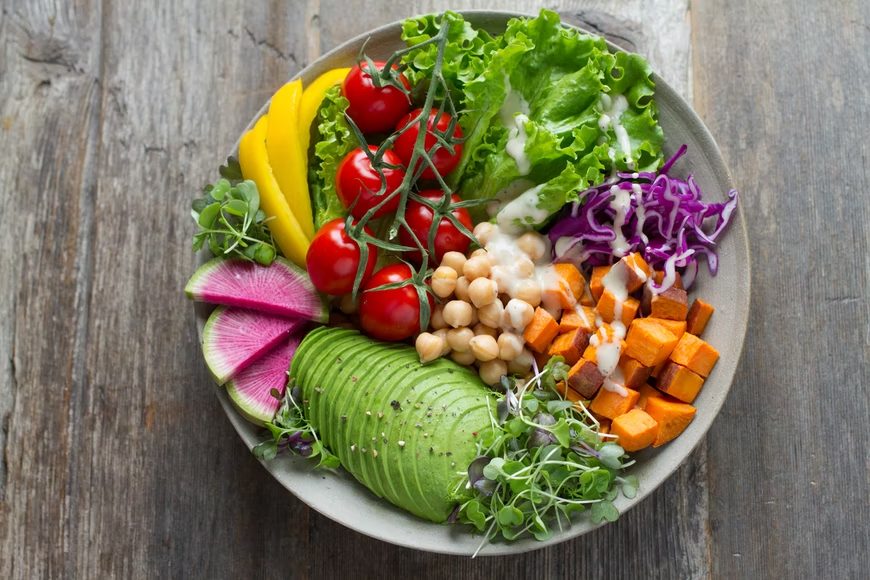Top 7 Weight Loss Strategies You Need To Try Today
You may think that losing weight requires long workouts and careful meal planning. Although those factors are important, there are numerous simple adjustments you can make to your lifestyle that can help you lose weight.
Before you start, it’s critical to understand that no two people lose weight similarly. Even if they consume the same meals and engage in similar exercises, two people of the same weight and height will lose weight at different rates. Everyone’s situation is different, so no one solution fits all.
Here are seven Weight Loss Tips to jump-start your weight loss journey.
1. Get Enough Rest
Table of Contents
According to research, getting more sleep is better for your general health and fat reduction attempts.
It will be more difficult for your body to get rid of excess fat if you do not get enough sleep continuously. Poor sleep can disrupt your hunger hormones, leading to increased cravings (particularly for high-sugar, high-calorie processed meals) and overeating. It can also impede post-workout recovery and prevent your body from gaining and retaining muscle mass.

2. Consume Enough Protein
You could lose weight on any diet if you consume fewer calories (meaning you take in fewer calories than your body burns). Many experts agree, however, that if you want to reduce weight without losing muscle mass, you should focus on a high-protein diet.

A high-protein diet can help prevent muscle loss. This helps you maintain your metabolism and expend as many calories as possible. Protein also has a higher satiating value than carbs or fat. This implies that if you consume enough protein, you will likely feel less hungry.
3. Don’t Be Afraid Of Fat
Fat has a negative reputation, especially among those trying to lose weight (perhaps because it’s termed “fat”).
In actuality, our bodies require fat to exist and thrive. You might suffer from many unpleasant side effects if you don’t consume enough fat, such as dry skin, dry hair, poor digestion, and hormonal abnormalities (remember, the body needs fat to produce hormones). Fat can also make you feel more satisfied, making it easier to fight cravings and adhere to your diet. Make sure you consume at least 20% of your calories from fat when calculating your fat loss macronutrients.
4. Concentrate on Whole Foods
You may include some processed foods and “treats” in your diet while prioritizing weight loss. However, if the majority of your diet isn’t made up of whole foods, you’re making your weight reduction period more complicated than it has to be. Compared to processed, packaged foods, whole, unprocessed foods (meat, legumes, fruit, vegetables, healthy fats, etc.) are more satiating.
5. Consume More Fiber
Fiber might also come in handy when dieting and attempting to avoid cravings. Fiber is a nutrient derived from plants that the body cannot process. We can’t digest it, yet it still benefits our health. It nourishes the bacteria that dwell in our digestive systems and helps digestion. It also makes us feel full, which lessens our propensity to overeat. For optimal digestion and gut health, you should ingest at least 25-30 grams of fiber daily.

6. Take the Correct Supplements
Several supplements can help you lose weight. Some of the most effective ones to have in your arsenal are as follows:
- Caffeine: Caffeine has been proven in several studies to enhance calorie burning and metabolism; it also increases the metabolic rate, allowing you to push yourself further (and burn more calories) while exercising.
- Yohimbe: Yohimbe is well recognized for its fat-burning properties; it helps the body burn fat more efficiently while decreasing hunger and improving energy.
- L-Carnitine: L-Carnitine assists in the transfer of fatty acids into the mitochondria of your cells, resulting in more energy, higher performance, and faster recovery.
- You can also try anabolic supplements to boost your energy. find it out here: canadiananabolics.is
7. Include Some Refeed Days
When trying to lose weight, the most crucial thing to do is to eat in a calorie deficit. However, you do not have to consume the same quantity of calories every day.
In fact, some studies, including a new study released this year, show that incorporating “refeed days” (days when you consume additional calories, typically in the form of carbs) into your diet might help you prevent losing muscle mass when dieting.
This diet strategy works as follows: instead of decreasing your calories by 25% seven days a week, how about cutting them by 35% for five days and then eating at maintenance for two? You’d still have the same overall calorie deficit for the week, but you’d have two extra days to eat.
This strategy can relax both your body and mind, making it simpler to stick to your diet. You’ll also be less likely to experience some of the negative impacts of calorie restriction, such as muscle loss.
Also Read: Healthy Eating Habits for Men
Bottom Line
Weight reduction and fat burning are difficult, whether you have a lot of weight to lose or are attempting to shed those last few obstinate pounds before taking the stage. In any case, the good thing is that there are things you can do to make the process a little smoother.
Keep these points in mind while you work toward your objectives to stay motivated even on the most difficult days.




